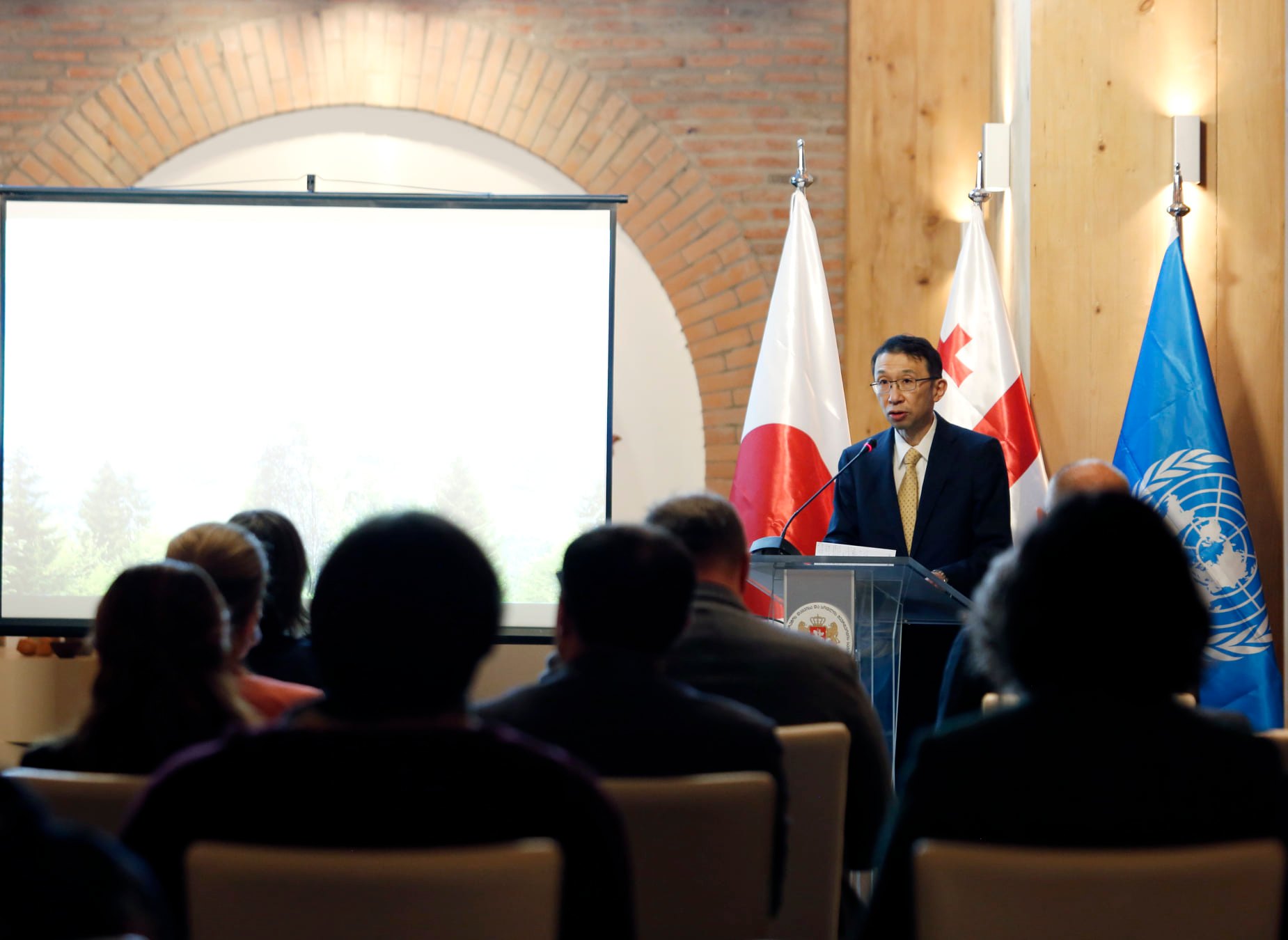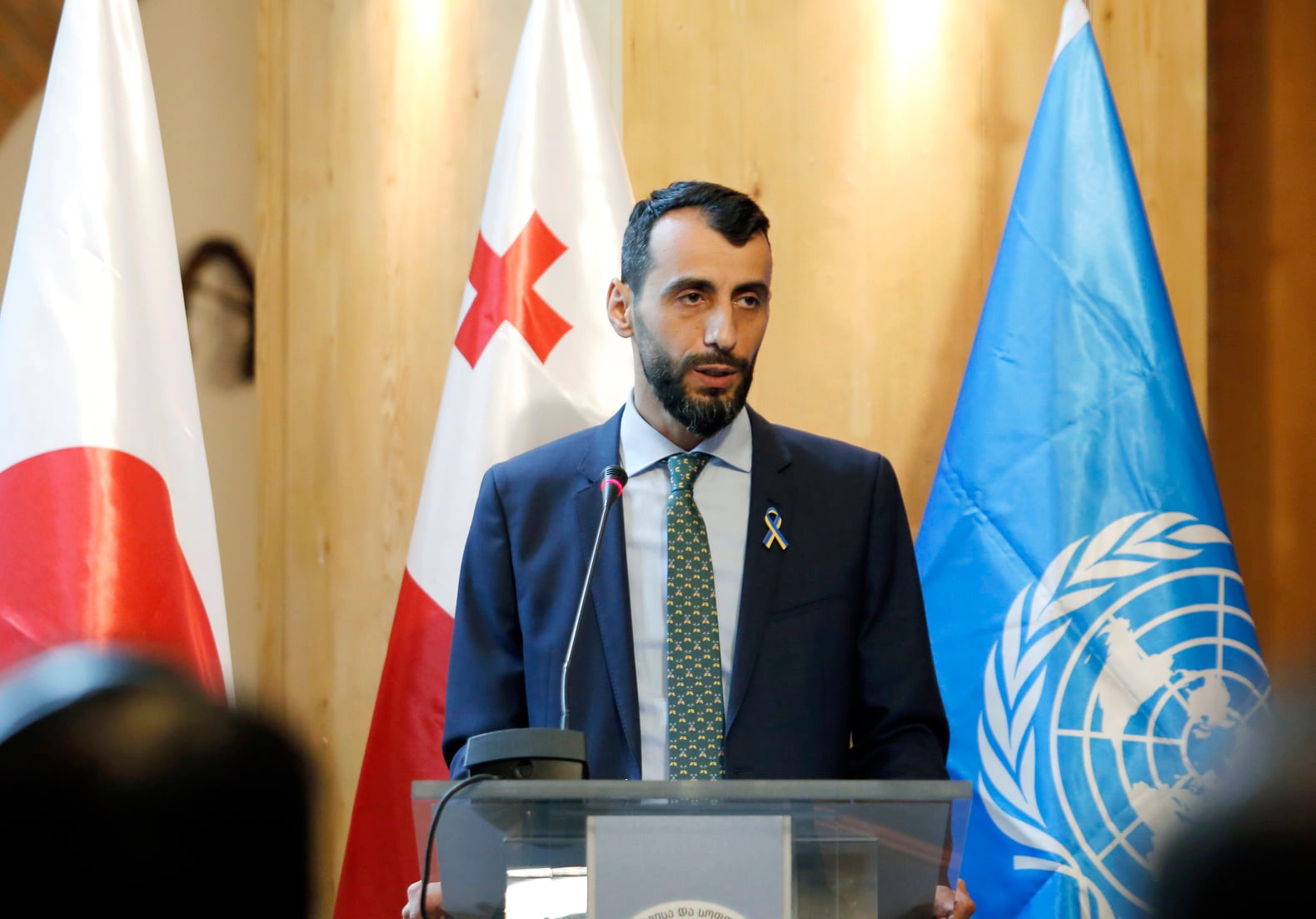News
The Government of Japan, the United Nations Development Program (UNDP), and the Ministry of Environmental Protection and Agriculture of Georgia are launching a joint project
The project amounting to $ 920,000 assists Georgia in fulfilling international commitments in the field of climate change mitigation and adaptation.The presentation of the new project was attended by the Assistant Administrator, Director of the Regional Bureau for Europe and the Commonwealth of Independent States, United Nations Development Programme (UNDP), Mrs. Mirjana Spoljaric Egger, Deputy Minister of Environmental Protection and Agriculture Mrs. Nino Tandilashvili, Ambassador of Japan to Georgia Mr. Imamura Akira and Chairperson of the Parliamentary Committee on Environmental Protection and Natural Resources.
" The introduction of a sustainable lifestyle, as well as generating the sustainable sources of income are pillars to sustainable development. Thereupon, it is sustainable development that gives people the opportunity to earn an income that does not pose a threat to the environment and, conversely, serves to save our planet and humanity. Georgia is one of 23 countries where Japan and the United Nations Development Program (UNDP) are making joint efforts to address climate change and take concrete steps," said Assistant Administrator, Director of the Regional Bureau for Europe and the Commonwealth of Independent States, United Nations Development Programme (UNDP), Mrs. Mirjana Spoljaric Egger.
"Introducing the mechanisms which can provide employment opportunities and bring benefits in parallel with the protection of the environment is a global priority. We thank the international partners for their support in introducing the principles of sustainable management in the country.
We appreciate, that Georgia is one of the countries where Japan and the United Nations Development Program (UNDP) jointly support the protection of the ecosystems, as well as sustainable forest management in the face of climate change. The gradual implementation of the Forest Code will increase access to firewood for rural residents and create new employment opportunities.
Moreover, as we are all aware, the Government of Georgia has taken ambitious commitments under the Paris Agreement. The implementation of the new program will help to fulfill the international commitments taken by the country in the field of climate change "- said the Deputy Minister of Environmental Protection and Agriculture, Mrs. Nino Tandilashvili.
The implementation of the new joint project will contribute to the introduction of sustainable and climate-friendly management practices in Georgia. The respective project will help in protecting the forests, reducing forest degradation and deforestation, and preventing forest fires. Thereupon, the forest will perform the function of absorbing carbon dioxide and reducing greenhouse gas emissions.
"Japan has an ambitious plan to achieve carbon neutrality by 2050. In addition to implementing the national plan, Japan also supports building low-emission economies in other parts of the world. Through our support, 43,000 people will be able to use green and sustainable solutions in Georgia, which will help to protect the delicate ecosystem of forest, ”said the Japanese Ambassador to Georgia Mr. Imamura Akira.
Through the support of Japan and UNDP, a pilot project will be implemented in Mtskheta Municipality to support the establishment of log sort yards, and the adoption of sustainable timber production practices. Three ‘ log sort yards will be opened and equipped in Mtskheta Municipality, which will serve about 43,000 locals.
Arrangement of log sort yards is part of the current forest reform in Georgia. From 2023, log sort yards should become fully operational throughout Georgia.
It should be mentioned, that in 2021, Georgia adopted an updated Nationally Determined Contribution (NDC) document, which stipulates the country's commitment to unconditionally reduce the total greenhouse gas emissions to 35 percent below its 1990 baseline level by 2030. At the same time, the Government of Georgia has approved the National Climate Change Strategy 2030 and the Action Plan for 2021-2023, which outline concrete steps to fulfill the respective commitments. Increasing carbon sequestration in forests by 10 percent is part of this ambitious plan.



